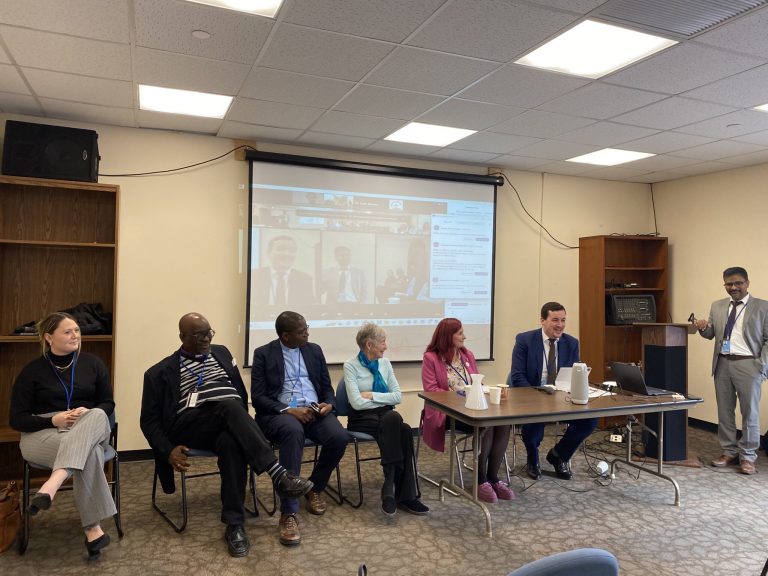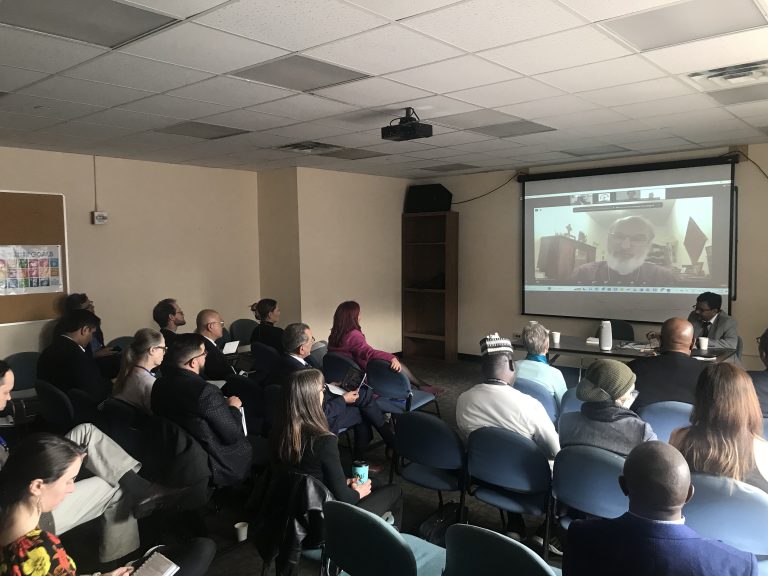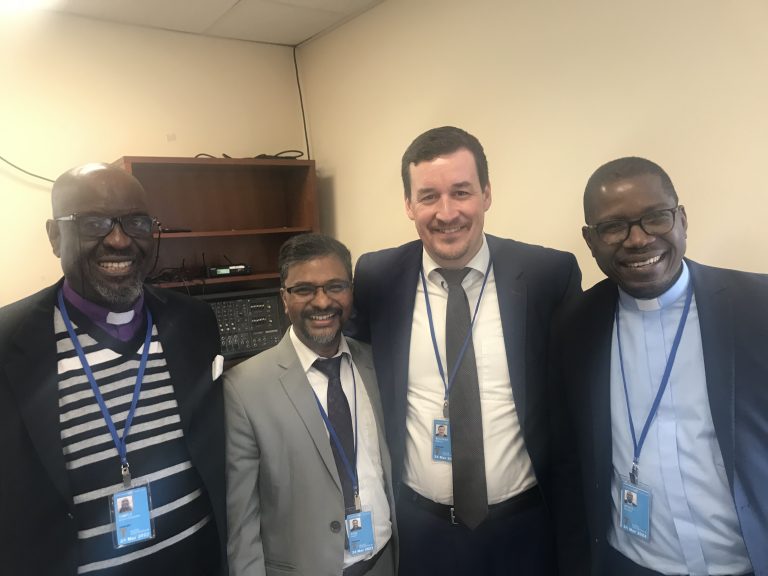“Faith Community is a Blue Community” was the title of a hybrid side event on World Water Day 2023 that WEA had jointly organized and co-sponsored together with partners on Wednesday, 22 March 2023. The session that took place in the context of the UN Water Conference in New York at the UN Church Center, was co-hosted by the World Council of Churches, the International Partnership on Religion & Sustainable Development (PaRD), the Evangelical Lutheran Church in America and the World Evangelical Alliance Sustainability Center.

The special event recognized the potential of faith communities to achieve the UN Sustainable Development Goal #6, highlighted faith-based good practices on water justice issues, informed about the concept of “Blue Communities”, promoted the Water Justice Manifesto and helped build synergies and develop networking for faith and interfaith groups attending the UN Water Conference. The program featured perspectives from Pedro Arrojo-Agudo (UN Special Rapporteur on the Human Right to Water and Sanitation), Rev. Dr. Kenneth Mtata (World Council of Churches), Maude Barlow (Founder of the Blue Planet Project), Archbishop Thomas Paul Schirrmacher (Secretary General of WEA), Dr Iyad Abumoghli (Director of UNEP’s Faith for Earth coalition), Christine Mangale (Evangelical Lutheran Church in America), Bishop Temple (President of AACC and Chair of the Ecumenical Water Network), Dr Jennifer MacCarthy (PaRD Secretariat) and Eva Markovic (Initiative on Right to Water).
Two things stood out and were mentioned time and again by many speakers:
(1) Water for Life is much more important than Water for Profit. This was discussed in all necessary differentiation, especially by Pedro Arrojo-Agudo who offered a very helpful ethical reflection on the various functions of water with ethical priority of water users. Economic use is principally not unethical, but only comes in on the third level of priority. Thus, the solution does not have to be and will not be to eliminate the private sector and businesses from water management altogether but to make sure that the framework in which water is a business is justice oriented and governed by a democratic process.
(2) As the meeting took place in the context of the UN Water Conference, the need for an intergovernmental body on the level of the UN dealing with water was emphasized by several speakers. It has to come in the form of a coordinated mechanism within the UN which is accountable not only to governments but also to citizens in general. Matthias Boehning, Co-Director of the WEA Sustainability Center and co-host of the side event, encouraged the participants at the end of the session to specifically monitor every progress in this direction during the UN Water Conference as the goal has to be to give water a “home in the UN”.

Being a faith-related event, the importance of water to faith groups had been highlighted as much as the importance of faith communities for protecting and managing water. WEA Secretary General, Archbishop Thomas Paul Schirrmacher reminded the participants about the spiritual significance of water across all religions. Being one of the panelists he underlined that “water is life” and that water is a human right. He quoted from Exodus 17, where the Lord provided water from the rock to bring “Shalom” for the people of Israel in the desert. Dr. Iyad Abumoghli emphasized how water connects to the holy texts of the Abrahamic religions and in fact how all religions speak about water. Maude Barlow shared memories of how instrumental faith communities had been to inspire the Human Right to Water in the first place and to give SDG 6 a meaningful language.
Being a longtime advocate for water and human rights, Maude Barlow emphasized how easy it is to get discouraged since there is so much negative data about water and since the direction the world is heading is very concerning. She spoke of “wise hope” – a term that inspired many in the room. John Girgis, WEA Permanent Representative to the UN in New York, felt reminded of Romans 12:12 “Rejoicing in hope, patient in tribulation, continuing steadfastly in prayer,” and wrote afterwards: “The idea of ‘wise hope‘ connects well to our Christian faith since we are privileged to know that we can have hope even when we face what seems to be overwhelming obstacles. We can apply Romans 12:12 in challenging times as we continue to look for ways to be part of a movement toward Blue Communities all over the world’. Local churches can become part of the solution to one of the key challenges in the Kingdom of God in our time about justice issues if they recognize and use their potential to contribute to the fair management of available water resources for all – especially the poor and those who tend to be excluded. The question is where can the church speak louder and where can it contribute to transformative change through decisive action?

In summary, the side event was a rich session, from which all participants were able to take away a lot of insights and inspiration. Special gratitude goes to the World Council of Churches Ecumenical Water Network and especially to Dinesh Suna who had been championing this conversation for many years and who was instrumental in putting this important side event together. Linking back to what Archbishop Thomas Paul Schirrmacher emphasized in his contribution, all Christians around the world have an opportunity to lead in building Blue Communities to bring “Shalom” to people around the world.
A report from the WEA Team (WEA UN Liaison Office, New York & WEA Sustainability Center, Bonn)
Watch the recording:





Stay Connected